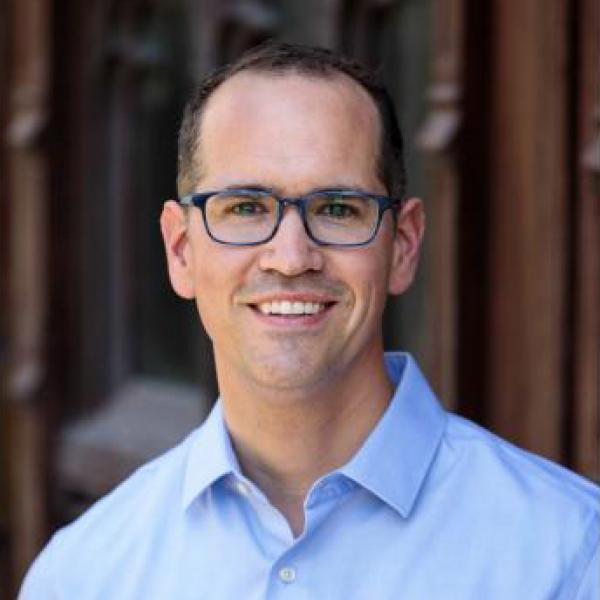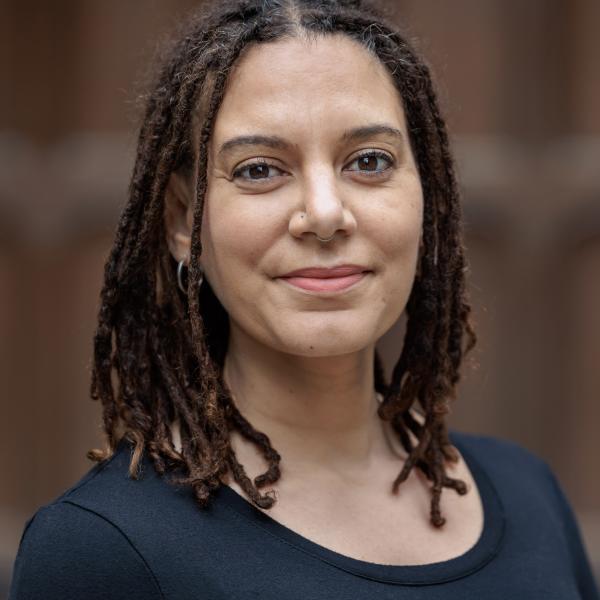
The Committee on Theater and Performance Studies (TAPS) supports innovative work at the intersection of theory and practice across a broad spectrum of disciplines. For students seeking an intensive immersion in theater and performance studies at the graduate level, the MAPH TAPS Specialization is an excellent choice. It is designed to take advantage of the vitality and rigor of MAPH, while capitalizing on the university’s faculty strengths in TAPS as well as the culture of collaboration between the TAPS program and Chicago's professional theater and performance communities.
Selected Faculty
Sample Courses
TAPS 30040 - Black Shakespeare (Noémie Ndiaye)
This course explores the role played by the Shakespearean canon in the shaping of Western ideas about Blackness, in long-term processes of racial formation, and in global racial struggles from the early modern period to the present. Students will read Shakespearean plays portraying Black characters (Othello, Titus Andronicus, The Tempest, and Antony and Cleopatra) in conversation with African-American, Caribbean, and Post-colonial rewritings of those plays by playwrights Toni Morrison, Amiri Baraka, Bernard Jackson, Djanet Sears, Keith Hamilton Cobb, Aimé Césaire, Derek Walcott, Lolita Chakrabarti, and film-makers Max Julien and Jordan Peele.
TAPS 30320 - Housekeeping: Domestic Drama and Material Culture (Ellen MacKay)
This course overturns the orthodoxy that an early modern play was a co-imaged event and the early modern theatre was an “empty space” by attending to the Renaissance theatre's frequent recourse to household stuff. We will read plays designed for private performance, that use the fixtures of the household to build theatrical worlds. We will investigate dramatists who liken the playhouse to key venues of commodity culture, including the pawnshop, the Exchange (the precedent of the shopping mall), and the fairground. We will draw from Henslowe's Diary to recover the business of theatrical property-making and the allure of a company as disclosed by its holdings. All the while, we will question how the fiction of emptiness takes hold in theatre history, and how plays that depict a furnished world are relegated to second-class genres like domestic tragedy and city comedy.
TAPS 32312 - Virtual Theaters (John Muse)
This course probes the nature and limits of theater by exploring a range of theatrical texts whose relation to performance is either partially or fully virtual (philosophical dialogues, closet dramas, novel chapters in dramatic form, twitter theater, digital theater, algorithmic theater, transmedia games, remote theater.) One unit attends to experiments in remote theater since the COVID-19 pandemic.
TAPS 38320 - The Mind as Stage: Podcasting (Sarah Geis)
Audio storytelling insinuates itself into the day-to-day unlike other narrative forms. People listen to podcasts while they do the dishes, drive to work, or walk the dog. In this hands-on course, we will learn to produce a podcast from idea to final sound mix, and explore the unique opportunities that the podcast form affords the storyteller. Students will complete several short audio exercises, and one larger podcast project. The class will be held remotely, with an emphasis on remote recording techniques and what it means to document this moment using tools of non-fiction, fiction, and oral history.
A complete listing of offerings is available at the TAPS course page.
The Theater and Performance Studies Specialization
The TAPS Specialization allows students to gain fluency in the critical analysis of theater and performance studies, and to gain familiarity with or deepen their expertise in one component of theater and/or performance practice. MAPH students may complement their coursework in TAPS with study in Art History, Cinema and Media Studies, English, Gender and Sexuality Studies, Germanic Studies, and Poetry and Poetics, among other disciplines.
Students who complete the following requirements will receive a Theater and Performance Studies notation on their MAPH transcript:
- The MAPH Core course (Foundations of Interpretive Theory)
- One course designated to fulfill either the theory or history core requirement in TAPS (see the TAPS DGS or MAPH liaison for a list of these courses)
- Three elective courses in theater and performance studies, of which one or two—depending on the student’s professional ambitions—will have a significant practice-based component (e.g., TAPS courses such as advanced acting, directing, dramaturgy, choreography or design; courses in Visual Arts such as video, experimental animation, writing for performance; or similar courses in Music and Creative Writing)
- An MA thesis in theater and performance studies under the supervision of a TAPS faculty member. Depending on a student’s focus, the thesis may combine performance work with critical analysis. The final topic and form of the thesis project will be determined in consultation with the Director of Graduate Studies in TAPS
Please direct any questions you may have about specializing in Theater and Performance Studies to maph-support@uchicago.edu.
Recent TAPS Thesis Projects
“Encounters with the Divine: Theatrical Transformations and Negotiations”
Meenakshi Ajit, MAPH ‘24
Advisor: Andrew Ollett
“An Aim for Authenticity in Queer Performance: A Queered Dramaturgical Analysis and Staged Reading of Tony Speciale’s Unnatural Acts”
William DeVito, MAPH ‘23
Advisor: Devon de Mayo
"“It’s Not God”: Direct Address, Affect, and Audience Identity in Simon Stephens’ Sea Wall"
Collin Kavanaugh, MAPH '21
Advisor: John Muse
"ROOTBOUND: in which compassion as a political belief does not always translate to compassion as a personal practice"
Catherine Bevil, MAPH '20
Advisor: Heidi Coleman



